
No one was — or could have been — prepared for what was coming with COVID-19. But, for better or worse, there’s no substitute for experience.
In this spirit, we asked several church executives who have graced our cover in the past few years to reflect on leading during disruption. How have they and their teams navigated the unprecedented challenges of a once-in-a-lifetime global pandemic?
Their roles vary, from pastoral leadership, to operations, to facilities management. Accordingly, so do their experiences.
But one truth emerges time throughout: opportunity lies in adversity.
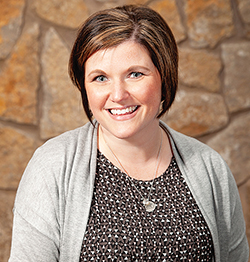
What lessons did 2020 — and the Coronavirus, uniquely — teach you about church budgeting and spending?
Sarah Taylor: Ultimately, [2020] has been a reminder that God is the source. As we began the lockdown, there was concern about tithes if our members lost jobs or had hours reduced. But as the year progressed, we saw church members give generously to help others.
Additionally, it has given us an opportunity to reevaluate what’s most important in the budget. We have been able to continue to bless our members in need, our community, and our global missions commitments.
“It’s hard to change the habits of an 85-year-old church! Sometimes an outside force is needed, if not entirely wanted. We keep saying COVID-19 ‘broke the box.’ Now, we’re forced to think outside of it.” — Sarah Taylor
Dr. Jimmy D. Pritchard: We anticipated a significant drop in income; however, that didn’t occur. Though our giving was somewhat less than the previous year, we managed our spending well. Our 2021 budget is less than 2020, and it looks like we’ll emerge from the pandemic in good shape.
Heidi Coughran: This pandemic and economic volatility has prompted us to closely evaluate our budget, reduce unnecessary spending, and more closely monitor expenses. Any funds that have been freed up as a result of cancelled ministry programs are evaluated to be used towards ministry opportunities that we haven’t had before. For example, although we already had livestream services in place before COVID-19, we invested more into our technology to provide a better online experience to the growing virtual congregation.
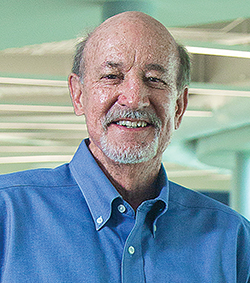
(Forney, TX)
Matt Kautzky: It’s nearly impossible to accurately budget with so many unknowns — when in-person Sunday services will resume, increased cleaning standards, new ministry needs, and so on. We have donned an approach of budgeting on less giving than the prior year and managing expenses to a bottom line. Gone are the days of being within a percent or two on each line item; we lead with a balanced perspective, focusing on what’s needed right now while reserving contributions for the future knowns and unknowns. There’s a lot of gray area with budgets, and large amounts of grace are needed among all active parties.
For me to lead well during [COVID], I had to stay positive and be the lead encourager for our staff and our people. I also spent quite a bit of time working out so I would stay in good physical shape. Challenges always brings opportunities, and I tried to keep our focus off the challenges and on the opportunities. — Dr. Jimmy D. Pritchard
Jeff Wilson: A key takeaway has been to plan but be flexible. Help the church see what their money is doing to change lives. Cast a vision for them to give to. Share the needs and the “why.” Show the church how we are, as a church, “living within our means” and trusting God during the disruption. Don’t forget to celebrate the wins with the church.
We’ve always said the church budget is more of a flexible (versus fixed) plan, and 2020 pushed that viewpoint to the limit. We’ve worked hard to encourage the church to continue to give in faith, and they’ve overwhelmingly responded.
Our staff has also stepped up by adjusting their budgets to the new normal.
God has blessed us by meeting and exceeding all our needs and at the same time increasing our reach into our community, our state, and the world. During this pandemic, we’ve even partnered with a great group of people to plant Storyline Church in St. Louis. All praise to God!
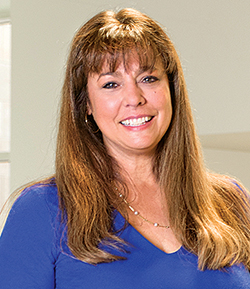
Bobby Hart: God’s faithfulness shone brightly this year, in spite of the pandemic. Expenses were down because churches didn’t meet nearly as much in 2020. But giving remained relatively unchanged, revealing members’ faithfulness and the Lord’s provision for His church.
How about managing the church staff? What lessons were learned under pressure?
Pritchard: We actually added three new staff members during the pandemic. The biggest issue was to keep everyone encouraged and motivated to press on into new ways of doing ministry. Several innovative strategies emerged, especially in the areas of children’s ministry and church tech.
“We don’t assume everything will go back to normal when this pandemic has passed. I’m looking forward to a leaner, more strategic church that faithfully pursues our mission of equipping one another to bring the wholeness of Jesus to a broken world.” — Heidi Coughran
Coughran: COVID-19 is disrupting people’s lives and creating anxiety, fear and hardship. Our staff aren’t immune. It’s easy to do ministry when everything is going well, but it’s much harder when things get difficult. Hardships hit home, and maybe our faith is even tested.
Our senior leadership team is paying close attention to making sure our staff is healthy, both physically and spiritually. Providing clear communication and affirming that their safety is a priority, plays a significant role in easing stress. Our staff has been operating under an “all-in” mindset, and it has been beautiful to watch them care for each other and make sure all bases are covered as we navigate the ups and downs.
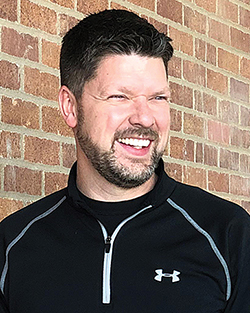
All leaders were challenged in 2020. We were stretched and had to respond quickly when municipalities issued executive orders that regularly changed what we could do in our buildings. We also had the issue of conscience to deal with when we knew there was a real risk to some of our more susceptible members. In everything, the Lord was gracious and blessed us in spite of our sometimes crazy ideas. And members were gracious when mistakes were made. — Bobby Hart
Kautzky: Our staff’s creativity and determination to make a 100-percent virtual Sunday service is nothing short of a miracle. We’ve improved the quality on a weekly basis and look forward to new studio spaces in late February to further elevate the experience.
The development of brand-new Christmas experiences (caroling and a drive-thru nativity) allowed us to share the story of Jesus with several thousand people without anyone leaving the safety of their vehicles. Through it all, we’ve seen staff rise to the occasion, exhibit their unique gifts, and engage various teams, including volunteers.
Wilson: We were already in a somewhat disrupted state when the pandemic hit. Our lead pastor of 11 years resigned in January; we began our search for a new pastor in February; March brought the pandemic. I was immediately tasked to lead the church through this transition. Our church council (elders) has also been instrumental in providing leadership.
During the pandemic, we’ve taken the opportunity to reevaluate our staff and their roles. Some positions were eliminated. We created new positions meeting new and future needs. We even decided to move from one church database system to another.
Staggered work schedules, constantly changing children’s schooling requirements, and meeting individuals’ and families’ needs have been a constant priority. Through it all, it has been wonderful to watch everyone step up and take on new tasks, pull together to minister virtually through worship and small groups, and engage our community in ways we never dreamed.
Yes, this has been a time of disruption. But we’ve also done some realigning.
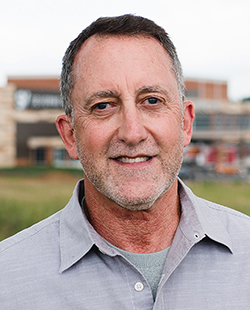
Disruptions can be planned and used by God to get our attention. He uses them to help us refocus. They cause us to move from autopilot to grabbing the wheel and becoming fully engaged. To think out of the box. To reimagine and become creative in doing things in new ways, with different people, with fewer resources. Disruptions can be exactly what’s needed to get us back on track. — Jeff Wilson
Hart: Our church employs many part-time employees who are critical for keeping things running when the church is in full operation. We aren’t used to being shut down and looking for things for people to do, but the new normal has allowed us to focus on members and stay in touch better than before. That has certainly been a blessing in disguise and a pivot that was divinely directed.
Phil Taylor: Our staff has risen to the many challenges 2020 presented. No longer were conversations about online services and engagement or how, theoretically, to restructure certain departments. We were becoming an online congregation, which meant restructuring every area of our church in real time. Encouraging the staff to keep moving forward at warp speed — and not collapse under the pressure — has been a great balancing act.
How have you kept members engaged with your church, even (sometimes) from afar?
Coughran: We offer limited-attendance and masked, in-person services, as well as virtual services. (We also met outside in our parking lot until the weather got too cold.) Wherever possible, we’re using social media, live streaming, and prerecorded programs. People are reacting to the pandemic in different ways, and we’re meeting them where they’re at.
For example, we created a special, activities-focused program for kids that runs immediately following online weekend services. We held our annual worship, prayer and healing night virtually this year; people connected with the program from home and also called in for one-on-one prayer. We host a Facebook Live program called “The After Party with Pastor Lance” on Sunday nights where our senior pastor talks on current areas of concern and then opens a Q&A session.
We’re continually working to provide opportunities to worship, connect with God, and interact with our teams. As a result, some connections are stronger than ever before.
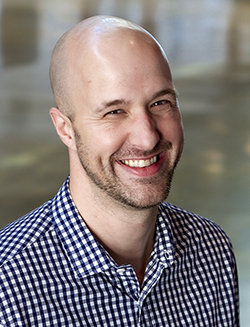
Leadership in our organization has changed in many small ways; however, the overarching vision of leadership hasn’t. We believe in equipping our staff to run their ministries as they see fit. We hire smart, talented people who we trust now more than ever. — Matt Kautzky
Wilson: Through the pandemic, we’ve learned just how much we relied upon programming to stay in touch with members. When all you’ve done in the past is stripped away, things have to change. We knew we wanted to use all the tools available — new and old — to engage people. Communicate, communicate, and then communicate more.
We immediately began live streaming our worship services. Within weeks of closing our campus, we began offering small groups using Zoom. Our SVkids and student ministries stepped up in big ways by creating weekly programming. Our deacons have continued to stay in touch with our widows, widowers and homebound members.
Another way we engaged with our church is by producing a weekly video called “SV Update.” It’s a great tool to encourage, inform, lead and comfort those in our flock. We began writing daily Prayer Points to lead our church to new heights in praying together as a body.
Hart: Unfortunately, gauging engagement has never been more difficult. We’re contacting every member family by phone, but we only see about one-third of our folks each weekend. Post COVID-19, we’re most excited about reconnecting physically with so many families we haven’t seen in months.
Sarah Taylor: In 2018/2019, we remodeled our sanctuary and upgraded our technology to allow for live streaming. We had no idea then that the Lord was uniquely positioning us “for such a time as this.”
Immediately, we were able to continue our services, looking much as they always had — but without an in-person audience. Our media team became “essential workers,” and we began producing online content we’d never done before.
We now see the church as being both online and in person, and we’re learning how to make that work.
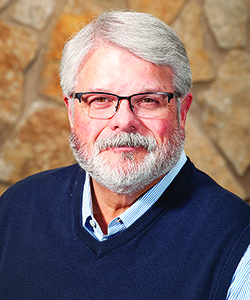
Pritchard: Our tech ministry has expanded and improved exponentially during this time. Our livestream has become very professional. We’re hosting Bible study groups via Zoom, as well as orchestrating other online connections to keep everyone in touch.
In what ways has your church embraced alternatives to large, in-person worship services?
Kautzky: During the pandemic, we’ve learned that we must not apply pre-COVID-19 metrics to our new events. If people are connecting with the Word of God, we’ve accomplished our goal.
We were able to host a few outdoor worship events and are looking forward to doing more when the winter weather relinquishes its hold on the Midwest.
The Holy Spirit hasn’t run out of creativity! If we keep allowing Him to breathe fresh ideas and creative solutions into our current crisis, I think we’ll find ways to keep engaging our communities, loving people, reaching the lost, making disciples, serving others, and — above all — honoring Jesus in all we do. — Phil Taylor
Wilson: Honestly, moving worship services to online, radio and cable TV was one of the easiest parts of the disruption. This is primarily because we were already providing cable TV and radio broadcasts of our services, pre COVID-19. Last January, we moved to YouTube to host our worship services online. The only addition, post COVID-19, was Facebook Live.
On March 13, we closed our campus and provided live stream and cable TV services only. This continued until June 21, when we moved to one in-person service, plus the live stream. We increased to two in-person services on September 6.
On November 1, we welcomed our new pastor, Dr. Curtis Woods.
On November 22, we went back to online-only services due to a surge in people testing positive in Kentucky.
All this to say, we’ve learned to stay agile and be ready for anything. We’ve also learned just how important in-person worship is. Sadly, sometimes losing something helps you understand its value.
Hart: We’ve gotten very proficient at putting together and disseminating worship broadcasts. Our worship team has taken on many new roles this year. They’ve done an excellent job creating worship opportunities for folks, whether they’re gathered on campus or connecting from home.
Phil Taylor: We hosted multiple outdoor prayer gatherings during the warmer months, and our Christmas concert was also held this way. They were well-attended, well-loved events, as people were able to socially distance but also see friends face-to-face. It created such a fun atmosphere.
Coughran: We invested in an outdoor venue on our campus with a covered area where people can assemble; it was completed in January. Not only is there an immediate need for a space like this, but we also realize that many people will be hesitant to meet indoors even after this crisis passes.
As you and your team look forward to 2021, what are you most excited about?
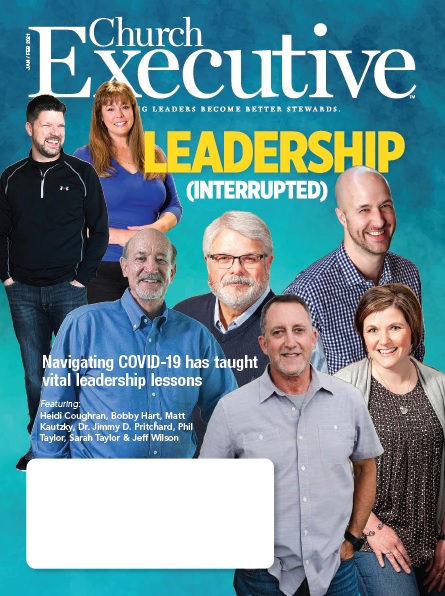
Wilson: We look forward to the day when we can move forward without fear, social distancing and masks. Yes, it’s been a very difficult time and stretched us in ways we never imagined. We’re thankful for what God has done in and through this pandemic.
He’s also shown us some things we needed to see. We have taken this time and used it to evaluate and prioritize our staff, time and ministries. We look forward to the end of the pandemic so we can move on to the new season of ministry He has planned for us.
Sarah Taylor: I look forward to coming out of this stronger than we were before. We’ve found and developed new skills, had deeper conversations about what it means to be a church, cut out excess, and gone back to the basics for discipleship. We’re taking this moment to rebuild, restructure and reorganize departments that we realize now weren’t as effective as they could be.
It’s hard to change the habits of an 85-year-old church! Sometimes an outside force is needed, if not entirely wanted. We keep saying COVID-19 “broke the box.” Now, we’re forced to think outside of it.
Phil Taylor: 2020 will forever change how we operate — in a good way. In 1999, our church building was destroyed by a tornado. It took 20 months to rebuild and get back into the building. We’ve been displaced before and learned so many lessons in the storm.
Twenty years later, we find ourselves displaced and disoriented from a different type of storm.
However, God was faithful then, and God is faithful now. We keep learning and growing and building for the future. We have no desire to simply get back to where we were pre-pandemic; we want to take what we’ve learned and grow from it.
Pritchard: The in-person interaction and direct ministry involvement is what I’m thirsty for.
Coughran: I’m looking forward to being a part of a team that will take this enthusiasm and momentum and build our church into one which unchurched people love to attend. We don’t assume everything will go back to normal when this pandemic has passed. I’m looking forward to a leaner, more strategic church that faithfully pursues our mission of equipping one another to bring the wholeness of Jesus to a broken world.
Kautzky: We long for the day to be able to connect with our church body in person. We were created in God’s image to be in relationship with one another, and it has been a tremendous challenge not to have daily/weekly/monthly events and services to do life together.
In this same vein, our transition to a 100-percent virtual church has produced growth. We look forward to seeing all the new faces who’ve never stepped foot inside any of our facilities.
How will your ministries and church operations look different in 2021 and beyond?
Hart: I hope we’ve learned and adapted so we shed some bad habits and gain some new efficiencies. We’ve certainly focused in on which programs aren’t necessary and pulled them from the plan.
The quality of online worship has improved, and we want to continue to produce that experience for folks who continue to connect from home, for a variety of reasons. However, we’ll encourage all our folks to return to in-person worship as soon as it’s safe.
Pritchard: All of us have a greater appreciation for the church. When in-person worship was cancelled, so many realized the depth of their love for the church. I don’t think anyone will take for granted the blessing and privilege we enjoy to worship and minister freely in the name of Jesus Christ.
Coughran: Our churches should come out the other side of this pandemic both different and better. As we make these important decisions, we need to make strategic choices that will allow us to lead with confidence into what lies beyond COVID-19.
Kautzky: One of the primary lessons for us is to have “open hands,” meaning we can’t hold too tightly to our hopes and dreams. We must be open to accept what’s placed in front of us and to pivot when faced with a challenge. Open hands are a faith exercise.
Second, we’ve re-learned trial-and-error. For years, we were doing similar ministry events with little change. This all went out the window as we searched for opportunities to serve our church body. From drive-in movies, to Zoom-led spiritual retreats, to parking lot life groups or socially distanced bonfires, we have a renewed spirit to just try.
Wilson: We’re so thankful for God bringing Pastor Curtis to us and his vision for the days ahead.
We’ve made a pledge to not pack our calendars so tightly so that we can focus more on getting out into our community instead of staying inside the walls of the church.
We’ve also learned to hold onto things, plans and programs loosely. Things can literally change in a moment.
We look forward to becoming more of a “sending” church than ever before and partnering with our church plant in St. Louis. We’re excited to come alongside our partnering churches in Nicaragua. We look forward to preparing more men and women for ministry Here | Near | Far.
We most likely won’t restart some of the programs in place before the pandemic. We want to use our people, time, money and resources the best way possible to produce Kingdom fruit. Being busy doesn’t mean we’re being successful. In fact, it can mean exactly the opposite.
— Reporting by RaeAnn Slaybaugh


